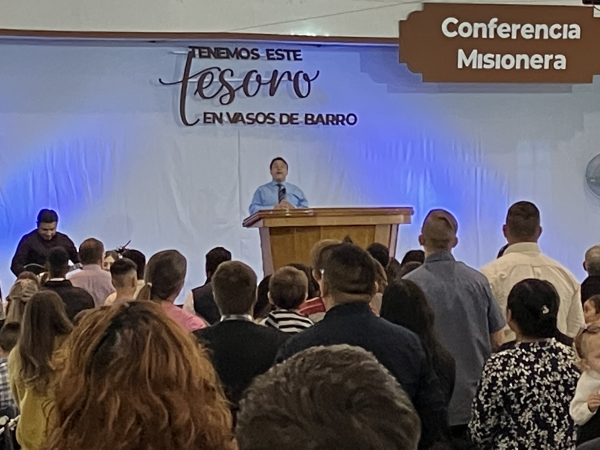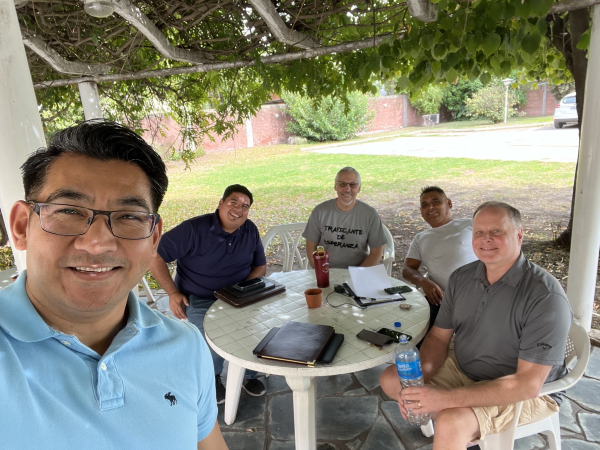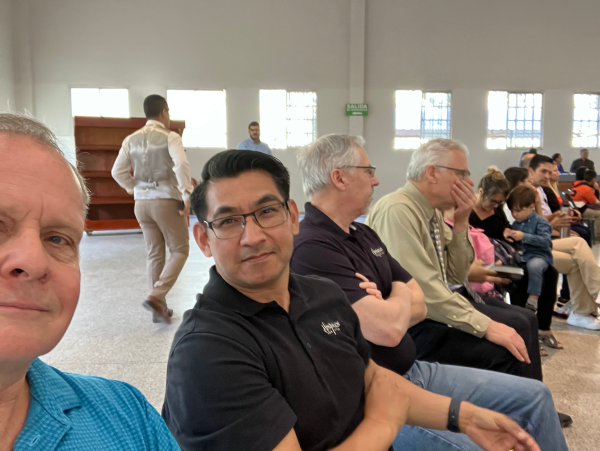Click here to view this newsletter as a PDF.
Partnership seems to be one of those ‘self-defined’ words in the world of global missions in our day. It’s used to describe just about any type of relationship between Christian organizations, churches, individuals, and any combination of those three as well. Because of this ambiguity, the meaning of partnership, and any sort of guidance for what it means to partner, can be lost because one may feel that they’ve already ‘checked the partnership box’ before actually having assessed and defined partnership.
To bring some common understanding to this topic, I’d like to address four concepts. While ‘partnership’ can be defined many ways, these are foundational concepts to understanding and building healthy partnerships.

IBM Mission Conference in Buenos Aires, Argentina – over 700 in attendance.
Come Alongside
To come alongside is a good place to start when thinking about partnerships. To come alongside implies that the Father, Son, and Spirit are already active in the place and among those you are considering partnering with. You’re not thinking that you are beginning a mission somewhere in the world. Even if it is not initially evident to you that God (and His people, whether they constitute a local church or not) is at work in a particular area of the world, rest assured, God is at work.
One of your first responsibilities is to discover or understand who the Spirit has already inspired to be salt and light in this corner of the world and to understand better how they are carrying out Kingdom objectives there. You may believe that what God is calling you to do there is different or not already being done by anyone (whether they’re a native of that culture or not), but please know that your first responsibility is to come alongside those already actively serving in the way of the Kingdom in that place.
Empower Others
Our Christian brothers and sisters around the world are incredibly polite in general and very patient with us from the West. About 18 years ago, I was convinced that the youth director of the Cameroon Baptist Convention needed to hear about a great new discipleship curriculum that would surely help their national youth ministries grow and to allow a group of North American Baptist youth leaders that I was representing train him and his leaders. What I overlooked was that the youth efforts that he represented were thriving and were probably 10 times the size of the national youth ministry that I was representing.
While we did find some collaborative momentum and did some great things together that are still going on to this day, my point is that it never crossed my mind that maybe he had more to teach me about discipleship than I did him. Worse yet, I don’t think I ever really asked him, so he never offered. Empowering partnerships (which happens to be #2 in The Standards of Excellence in Short Term Mission) is built on the idea that the potential partner is actually the expert on ministering in the local culture.

Lucio Gallo and David Vargas from Salta, Argentina, meeting with Geoff Hartt and Tony Campos (from Hispanics for Christ) and me in Buenos Aires.
Long-Term Relationships
If there’s one criticism of short-term mission that has persisted, it’s probably right there in the name of the movement: ‘short’-term mission. The obvious solution to that criticism is to do short-term mission within the partnering context of long-term relationships. As is the case in other relationships in our lives, long-term relationships don’t just happen; they’re intentional, they’re a product of a commitment, and they have a sort of intangible chemistry to them that comes through familiarity and spending time together just for the sake of getting to know one another.
In the Gateway ministry, this is probably the area where I get the most resistance in training churches to enter into sister-church partnerships. To have church leadership teams spend time together just getting to know one another and being with each other without having to accomplish something or do a project is a difficult sell for task-oriented people. However, time spent together is an essential piece of giving long-term relationships a chance to take root, and there is no shortcut. Despite the expense, we need to make the effort to spend time with our potential global mission partners because this is essential for healthy long-term relationships.

Tony Campos and Geoff Hartt of Hispanics for Christ and me at the IBM Mission Conference.
Culturally Sensitive and Mutually Beneficial
Anyone that’s been involved in global missions of any sort (including short-term mission) for any amount of time has undoubtedly been encouraged to understand the importance of cultural sensitivity and to understand, at the very least, the basics of cultural differences and cross-cultural ministry. This should be considered a given and a natural instinct when it comes to engagement in partnerships internationally. Yet what may not be quite as intuitive is the idea that there should be a mutual benefit that’s enjoyed by both members in a partnership.
You might have heard a short-term mission participant say, “I feel like I received much more from them than I gave to them on this mission trip.” The truth is it’s meant to be that way (Matthew 10:8). Partnership is collaboration and serving together. Partnership results in mutual benefit for both involved. Rather than being surprised by the mutual benefit of serving, expect it. Plan for it from the beginning of the relationship. It will become part of the DNA of your partnership from the start when you take the time to get to know each other and find a partner with a shared calling.
There are no ‘haves’ and ‘have-nots’ when it comes to global mission and partnership. We both ‘have,’ and it’s out of that abundance that the Father, Son, and Spirit have sent both members in a partnership. We partner and we serve together.
For the Kingdom,
